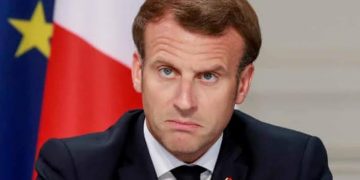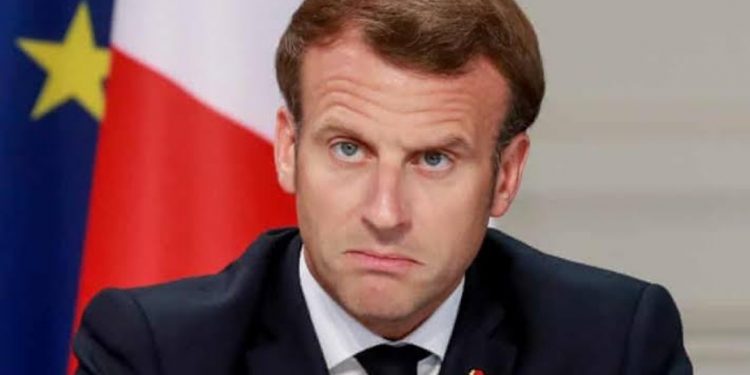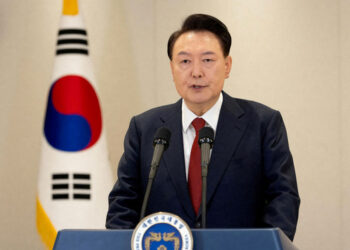By John Ikani
President Emmanuel Macron is on course to lose his absolute majority in the National Assembly and control of his reform agenda after the first projections by four pollsters showed Sunday’s election delivering a hung parliament.
Macron’s centrist Ensemble! alliance was set to end up with the most seats, the polls showed, followed by the left-wing Nupes bloc headed by the hard left veteran Jean-Luc Melenchon.
But they will be well short of the absolute majority needed to control parliament, near-final results showed.
Forecasts by pollster Ifop, OpinionWay, Elabe and Ipsos showed Ensemble! winning 200-260 seats and Nupes securing 149-200. The threshold for an absolute majority is 289 seats in the lower house.
Ministers and close aides acknowledged the upset, saying they would now have to reach out to others beyond their alliance to govern the country.
Finance Minister Bruno Le Maire called the outcome a “democratic shock” and said they would reach out to all pro-Europeans to help govern the country.
Melenchon’s Nupes alliance campaigned on freezing the prices of essential goods, lowering the retirement age, capping inheritance and banning companies that pay dividends from firing workers. Melenchon also calls for disobedience towards the European Union.
“The rout of the presidential party is complete and there is no clear majority in sight,” Melenchon told cheering supporters.
United behind him, leftwing parties were seen on course to triple their score from the last legislative election, in 2017, but they failed to secure the outright win Melenchon had hoped for.
If confirmed, a hung parliament would open up a period of political uncertainty that would require a degree of power-sharing among parties not experienced in France in recent decades, or political paralysis and even possibly repeat elections.
There is no set script in France for how things will now unfold. The last time a newly elected president failed to get an outright majority in parliamentary elections was in 1988.
Rachida Dati, from the conservative Les Republicains, called the result “a bitter failure” for Macron and said he should name a new prime minister.
Macron, 44, became in April the first French president in two decades to win a second term but he presides over a deeply disenchanted and divided country where support for populist parties on the right and left has surged.
His ability to pursue further reform of the euro zone`s second-biggest economy would hinge on his ability to rally moderates outside of his alliance on the right and left behind his legislative agenda.




































